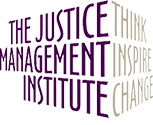I belong to an online professional community. Recently a member put forth an interesting question –
She asked, “if there were one piece of advice you could go back in time and give yourself at an earlier point in your career, what would it be?”
I waited and read the responses wanting to see if anyone would mention hiring a coach. Not altogether surprising, no one did (well, I did, finally). Thinking more about both the question and responses, I remembered having a conversation with a high-level executive who casually suggested that
the occasion for a coach is at the stage when we think we are bringing our best and complete self to our role, and hence, have no need. In his musing, he was verbalizing and attempting to understand the resistance to coaching as somehow punitive or a message of incompleteness rather than supportive and necessary as one embarks on untangling complex situations, creating and evaluating options, and committing to and staying the course required to be the leader people want to follow.
In Dr. Vikki Brock’s 2008 dissertation introduction she summarizes five points about the emergence of coaching: 1) coaching sprang from several independent sources at the same time and spread through relationships; 2) coaching has a broad intellectual framework that draws on the synergy, cross-fertilization, and practices of many disciplines; 3) modern patterns and practices of coaching are dynamic and contextual: 4) coaching came into existence to fill an unmet need in an interactive fluid world of rapid change and complexity; and 5) coaching came into being in an open integral social network from a perspective of diversity and inclusion. (http://libraryofprofessionalcoaching.com/concepts/best-practices-foundations/the-roots-and-emergence-of-coaching/)
Coaching continues to be an emerging profession, influenced by many disciplines. In Dr. Brock’s summary analysis, she offers six Principles for Coaching’s Evolution as the Dominant Worldview and Global Culture. They are:
- Understand and value the influences on and contributions to coaching.
- Embrace a definition of coaching that is inclusive and values diversity.
- Promote diversity and inclusion through an integral open social network framework.
- Support every human being to effectively use the knowledge, skills and abilities of coaching.
- Model and live coaching moment by moment in every interaction.
- Champion coaching as a social phenomenon for the 21st century and beyond.
I was struck with principle #6 where she posits that championing coaching as a social phenomenon for the 21st century and beyond require a shift from viewing coaching as a set of practices to seeing it as a social phenomenon. She further states that holding a coaching worldview and contributing to the spread of this positive epidemic sums up what is possible for coaching and the world. What is in front of us is the opportunity to contribute to the wellness of the planet, the flora, the fauna, and the human race. (http://cdn.libraryofprofessionalcoaching.com/wp-app/wp-content/uploads/2011/10/dissertation.pgs).
I concur and ask you “what keeps you from giving the gift that keeps on giving?” It matters less about being asked the right question, and more about engaging in a relationship that is fluid and open, provocative and supportive, relational and interactive, and mostly, a foundation of trust so that you, the coaching client, have a safe place to explore, rethink and perhaps challenge and change your theory in use. (Argyris & Schön 1974)






